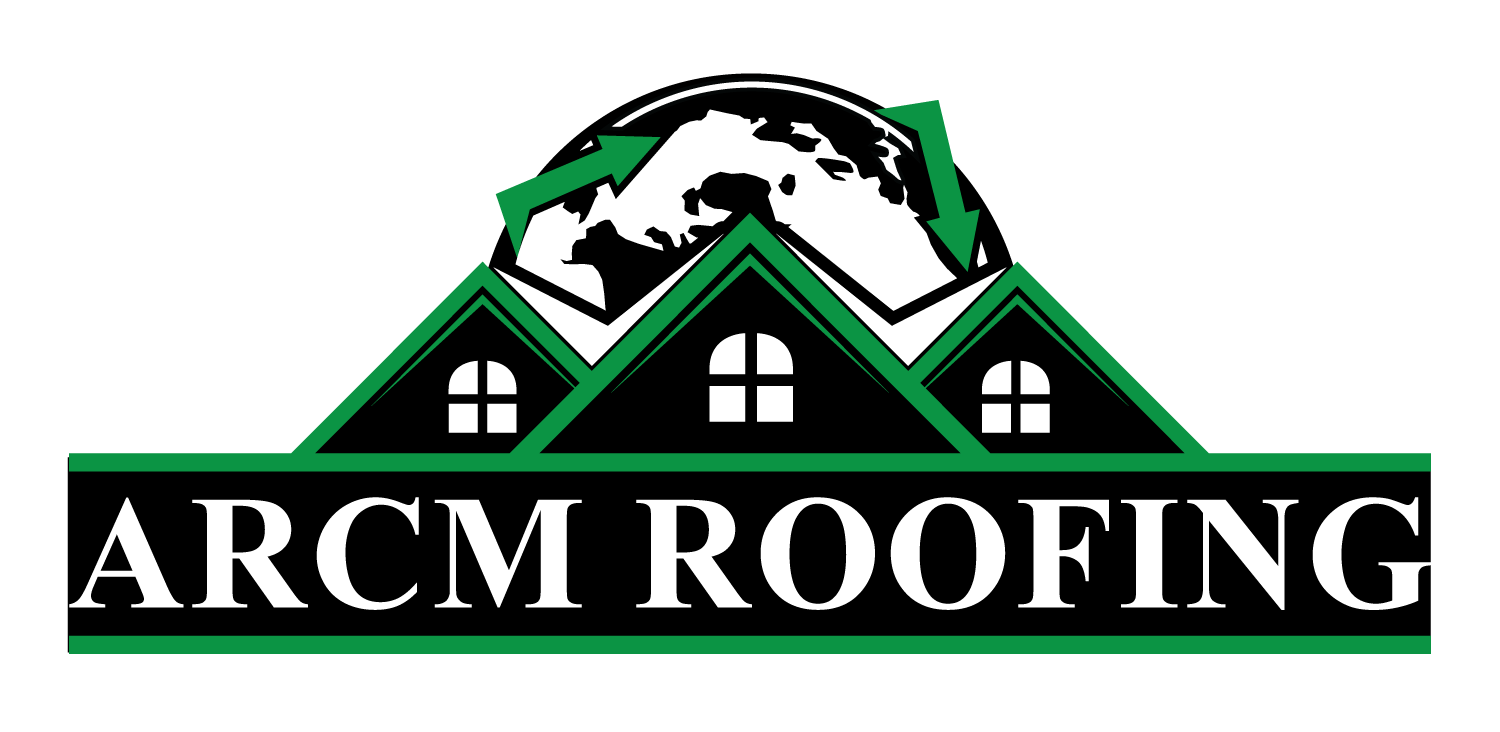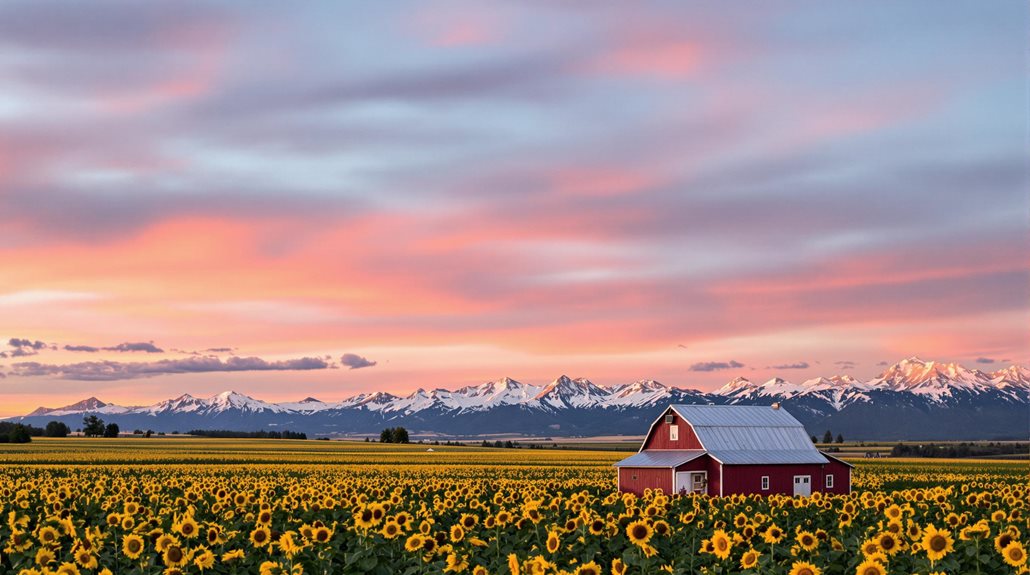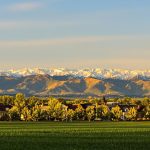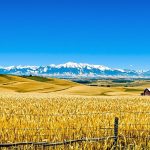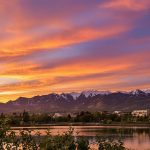Greeley, Colorado, originated as the Union Colony in 1869, founded by Nathan Meeker with support from Horace Greeley. Established on principles of temperance, education, and agriculture, it became Greeley in 1886. The city developed economically, with significant sectors in food processing, healthcare, and energy. Rich in cultural heritage, Greeley offers attractions like the Poudre River Trail and cultural venues. Its blend of history and modern activities invites exploration into its vibrant community life and outdoor opportunities. Further details reveal its vibrant tapestry.
Expert Highlights
- Founded as Union Colony in 1869 by Nathan Meeker.
- Located at the Cache la Poudre & South Platte Rivers.
- Incorporated as Greeley in 1886.
- Home to University of Northern Colorado.
- Features the Poudre River Trail for outdoor recreation.
Historical Roots of Greeley
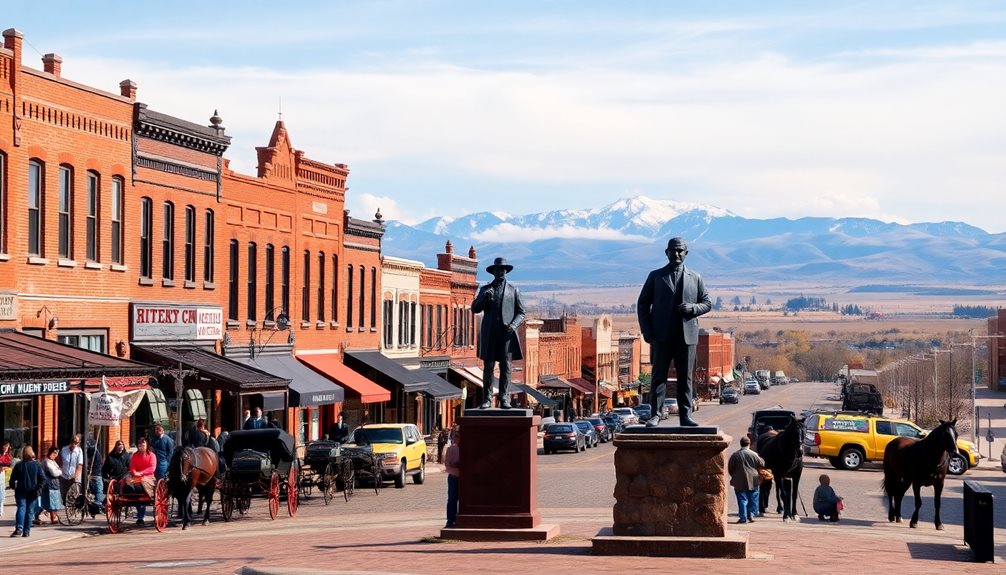
Greeley, Colorado, owes its historical roots to the Union Colony of Colorado, an experiment in utopian living that initially took shape as a joint stock colonization company.
Founded in 1869 by Nathan Meeker and supported by Horace Greeley, the colony was based on principles of temperance, religion, agriculture, education, and family values. It was established at the confluence of the Cache la Poudre and South Platte Rivers, offering fertile land and resources for irrigation, attracting settlers from across the United States.
The colony's name was later changed to Greeley in 1886 when it was officially incorporated. While Greeley grew into a major city, other Colorado towns like Limon's farming community developed alongside it during the state's early settlement period.
Economic and Cultural Development
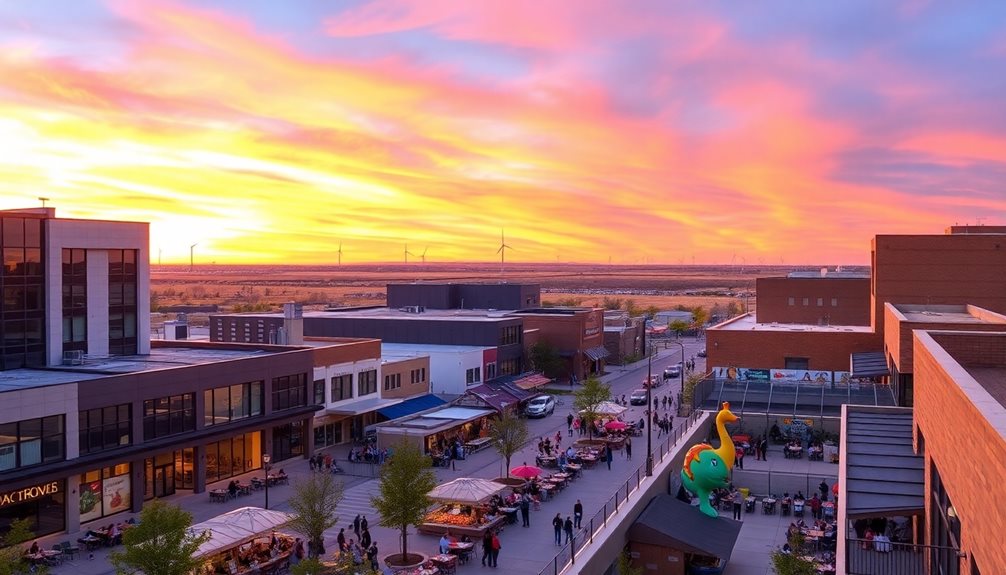
As the Union Colony shifted into an incorporated town, now known as Greeley, the foundational principles of temperance, agriculture, and community values gradually influenced its economic and cultural trajectory.
Today, Greeley is a thriving hub with diverse sectors:
- Food Processing: Major processors include Leprino Foods.
- Healthcare and Energy: Key employers are Banner Health and Chevron, contributing to a strong economy.
- Education: The University of Northern Colorado and Aims Community College drive educational prowess.
While Greeley continues to grow, many residents enjoy day trips to nearby historic Longmont for its local attractions and cultural experiences.
Lifestyle and Attractions
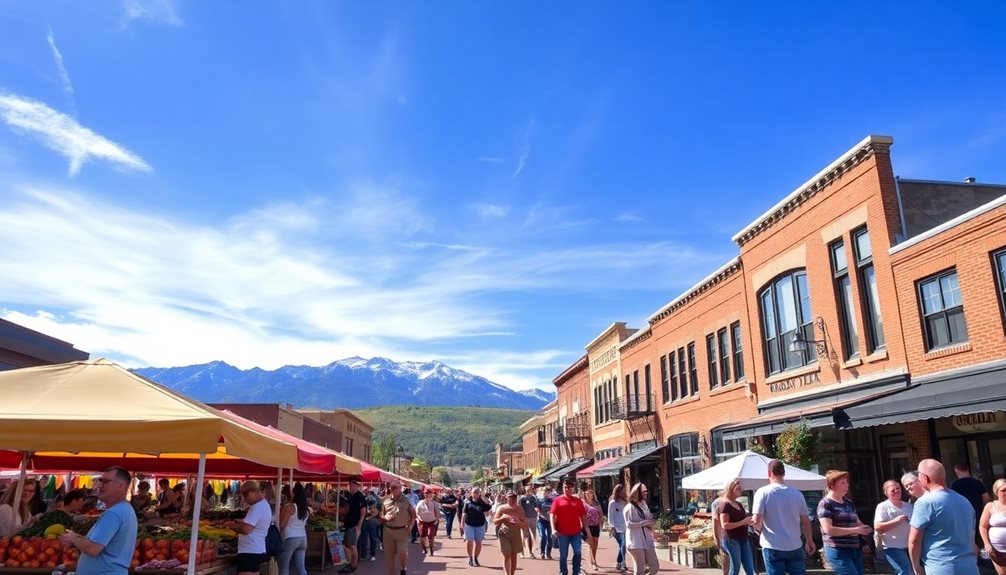
Beyond its robust economic sectors, such as food processing, healthcare, and education, the lifestyle and attractions in Greeley reflect a blend of cultural heritage and modern entertainment.
The city offers diverse activities, including the Poudre River Trail, a 21-mile path perfect for walking or biking, and cultural venues like the Colorado Model Railroad Museum.
Island Grove Regional Park hosts numerous events, while downtown areas buzz with music venues and local breweries, fostering community engagement through events like the Greeley Blues Jam and Friday Fest.
Outdoor and Recreational Opportunities**
When considering outdoor recreational opportunities, Greeley's landscape offers a diverse range of activities and environments that cater to both enthusiasts and casual participants.
Here are three key aspects of its offerings:
- Parks: Over 40 locations provide opportunities for sports, picnics, and playtime.
- Trails: Scenic paths are integrated into the city's park system.
- Natural Areas: The new Arroyos del Sol offers 978 acres of unique terrain and wildlife experiences.
Expert Final Thoughts
Greeley, Colorado, combines rich historical roots with vibrant economic and cultural growth. Its agriculture-driven economy has diversified over years, incorporating tech and manufacturing sectors. The city offers a thriving lifestyle with diverse attractions, including cultural events like the Greeley Stampede and multiple museums. Recreational opportunities abound, with over 40 parks and extensive trail systems along the Poudre River. Overall, Greeley balances small-town charm with modern amenities.
